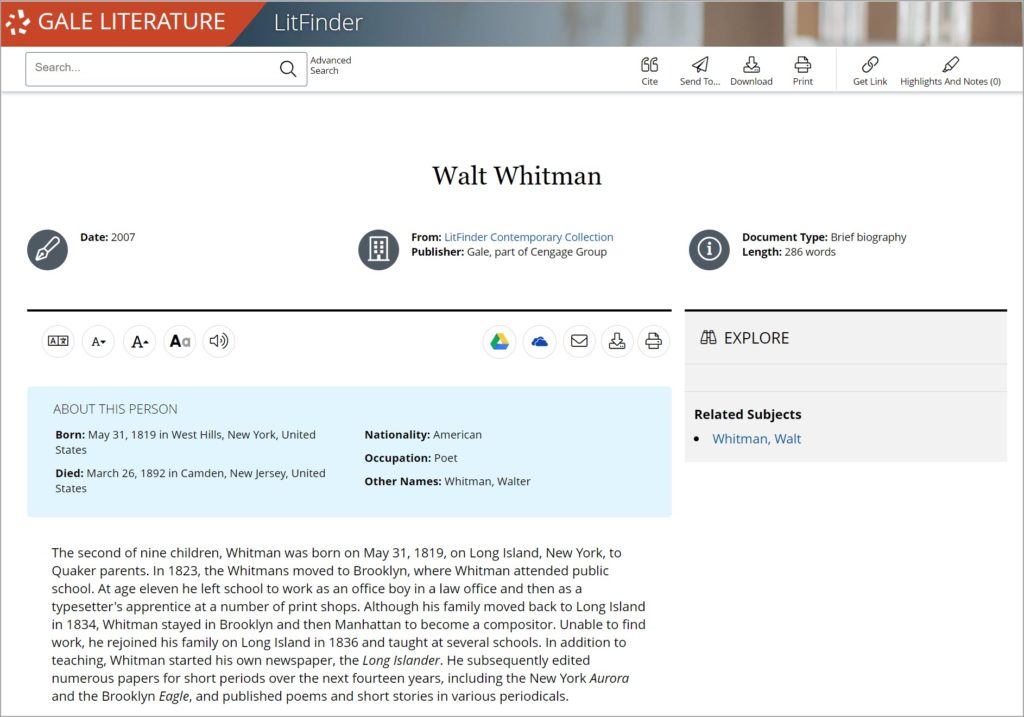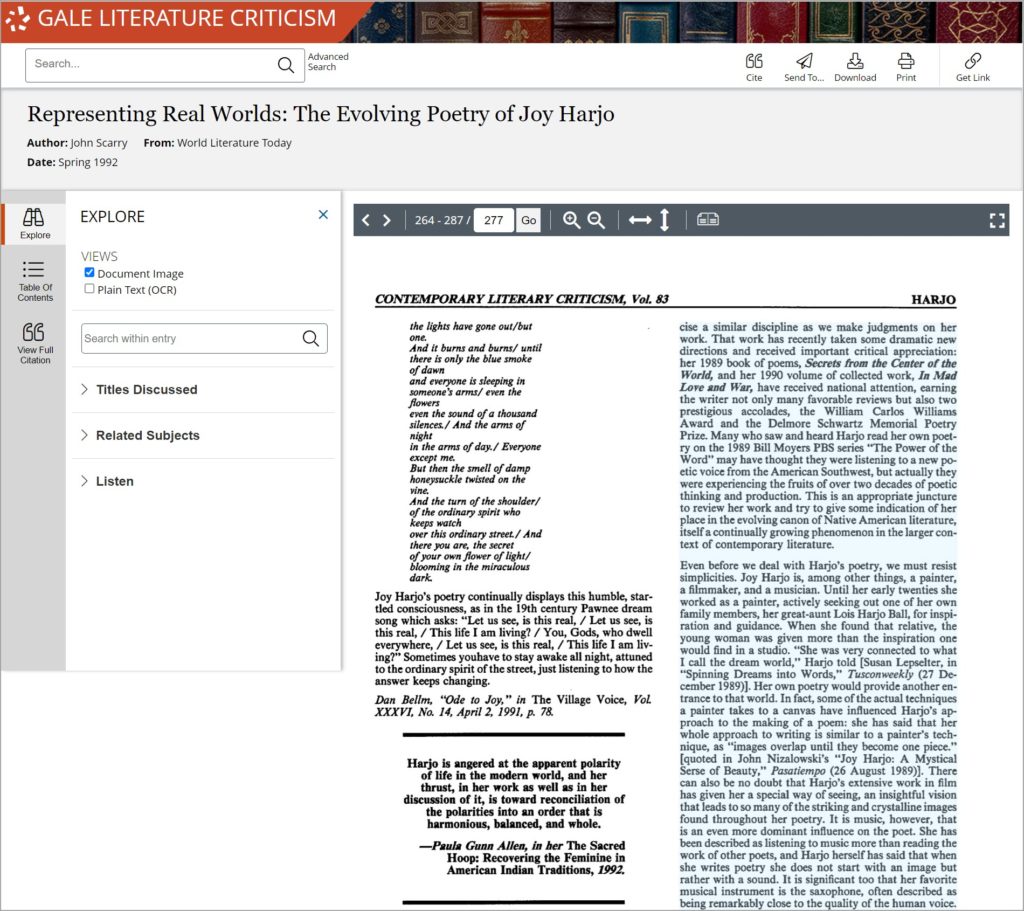| By Gale Staff |
March 21 marks the 24th anniversary of World Poetry Day. The United Nations Educational, Scientific and Cultural Organization (UNESCO) observes a collection of international holidays that celebrate certain fundamental aspects of human history and society. In 1999, March 21 was selected as World Poetry Day to honor humanity’s linguistic diversity and its artistic expression through poetry. World Poetry Day is a time to teach, create, and share poetry of all forms, with particular attention to endangered and indigenous languages. Poetry is an ancient art with ties to prehistoric cultures, and its multidimensional meanings help people from different backgrounds communicate with one another.
There are many ways for academic educators to help recognize the holiday. Consider inviting local poets for a reading or seminar on your campus, encourage your students to write their own poems, or attend a nearby open mic night or poetry slam. With Gale Literature: LitFinder and Gale Literature Criticism, you can find a highly curated collection of both popular and lesser-known poems, as well as biographical information on the authors and academic criticisms of their work. Using Gale’s collections, you and your students can more easily perform research and discover some of the most important poets in U.S. history.
Walt Whitman
Most any synopsis of American poetry will mention Walt Whitman, a man considered one of the most famous and culturally important poets. Using Gale Literature: LitFinder, you’ll discover full-text poems from his Leaves of Grass collection—works that commemorate the potential and individuality of the American spirit such as the masterpiece, “Song of Myself.” Having been involved in the Civil War, much of Whitman’s writings reflect the agony he felt seeing the country in such turmoil.

Looking to learn more about Whitman or his work? You can find topical overviews, news articles, and criticisms of Whitman’s pinnacle collection in Gale Literature Criticism. Consider actual 19th-century critical essays written in response to Whitman’s work or dive into some of his more obscure lines. Whitman was (and still is) a contentious literary figure, but you can trust in the accuracy and quality of the resources you find housed in Gale.
Emily Dickinson
The list of prominent nineteenth-century American poets is largely a club for men (Eliot, Poe, Emerson, Thoreau, Longfellow), as many women did not have the same access to education. Yet, the mysterious Emily Dickinson penned more than 1,000 poems. While elegant and simple on the surface, Dickinson’s poetry employed unconventional rhythms and irregular punctuation, creating layered and abstract meanings with few words.
Since Dickinson passed before her works earned recognition, she never received the praise she deserved. However, some experts believe this to be an asset to her poetry. Without public response or criticism, she wrote freely and without external influence. Nonetheless, there is a rich collection of critical reception. Experts expound upon the societal limitations placed upon her gender and how she persevered to become a role model for future female artists.
Joy Harjo
The American literary landscape thrives on its diverse voices, yet they too often go unnoticed. In honor of World Poetry Day, find time to explore the poets that highlight indigenous language and culture. Consider Joy Harjo—she was the first Native American poet laureate, and her works integrate Native American symbolism with larger themes like feminism and mixed ancestry. Discover her poignant, emotional works that reflect the Native American experience.
With supplemental resources from Gale, you and your students can investigate contemporary criticisms of Harjo’s unique perspective. The literary expertise housed in our database walks you through the various complexities of her poems, helping researchers discover the more nuanced meanings and cultural implications. For example, Harjo only ever learned English growing up, yet she strives to adapt the language of her culture’s colonizers as a way of artistic expression and healing.

While poetry can be difficult to understand and sometimes challenging to process, Gale’s resources help guide researchers toward the information they need to fully grasp the meanings behind the poems.
If your academic institution is not a current subscriber to Gale’s literature collections, you can learn more here or contact your rep to learn more.

